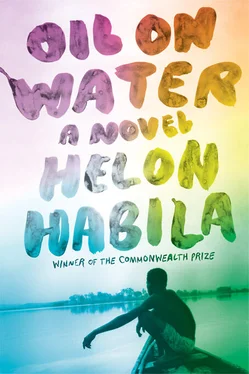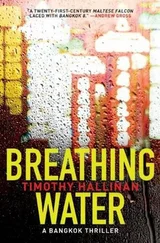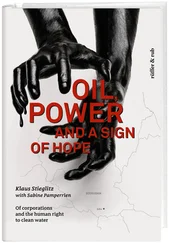I nodded.
— I know Irikefe.
— That day the Professor called me and said, How much were you idiots asking for?
— And I said three million, and he shook his head and said, Idiot. She is worth more than that. At least five million. We will send them her hair, that should convince them we have her. If it doesn’t, we will send an ear. But I hope it never gets to that, not good for business. She does have rather distinctive hair, so the husband should know it is hers. At the moment she is all over the news. That is good. The more publicity, the more money the company is willing to pay; if they refuse to pay, they will be seen in a bad light. So we will send the hair, then we will arrange a viewing. We will call the media to come in two days.
— The plan was to bring you reporters first to Agbuki, and then to Irikefe, where she was being held. And I was left with her because I was the only one she would talk to, and she was really falling sick by now. Vomiting all the time. She couldn’t eat the food. The Professor went with two boatloads of his men to Agbuki to wait for the media. He loves the media, he loves talking about his war for the environment and he wanted to receive the media personally and lead them to the worshippers’ island. But somehow the army had found out what was going on and were waiting for him when he got there. They thought he was with the woman. Many men were killed. But the Professor got away, they went back to Irikefe and that night we left the island with the hostage and came here.
— And what happened to your other partner?
— Bassey.
— Yes.
— He was killed by the soldiers on that island.
— Now tell me about the escape, how did you manage it?
He said although he was not confined in any way, he soon realized that he was as much a hostage in the forest as Isabel, and he grew scared. And meanwhile the woman grew sicker every day. After the attack at Agbuki, the Professor had raised the ransom money to ten million dollars, he had also grown more cautious and it didn’t look as if she’d be freed anytime soon. She grew more nervous, her face grew red and blotchy with insect bites and her clothes were all torn and dirty — they gave her a military jacket to put on when she washed her things. She cried more and more often, and more and more time went by, and at last Salomon gave in. He told her he would try to escape, but they had to plan carefully. The good thing was that even though general security was very tight, only one guard watched over them at any one time, because it didn’t seem conceivable that they’d make a break for it. Where would they go?
— It was not going to be easy. If we were able to leave the forest, we’d have to find one of the military camps out there, and if we didn’t find any, we’d have to find a village that would agree to hide us and help us get word to the military or to her husband. Hopefully they’d help us if we promised them money. I knew the people were more likely to betray us to the Professor — they fear the militants more than the army. But by now I was as desperate as she was to escape.
— How did you do it?
— At night, on a day when the camp was almost deserted, most of the men had gone on an operation, they do that all the time. I was in charge of her, as always. I knew where they keep the boats, over on that side, in a cave. There are always a few boats there; in case they are attacked suddenly by the army they can get away in the boats. And so that night she put on the military jacket and covered her hair and blackened her face a bit so she wouldn’t be recognized. The guard watching us always fell asleep around one p.m.; I guess he didn’t believe we would ever attempt to run away. So we waited till I was sure he was asleep, then we sneaked out. We almost made it to the boats when we were challenged by a voice right behind me. I didn’t think, I just threw myself at him, and luckily he didn’t have time to fire his gun. We fought and I bashed his head with a rock. I don’t know if he died. We rowed for many hours till we got to a village, and for a while luck was on our side. They were good people. They listened to our story, and they helped us.
When I woke up the next morning a man was kneeling over me,nudging me with his gun. I sat up quickly and the man stood up and moved back. The others were awake, except Salomon, who wasn’t anywhere to be seen. After our interview he had turned away from me and lain on his side, and he hadn’t gotten up even when our evening meal was brought by the same group that had fed us earlier. When I called to him to come and eat, he had said no, he wasn’t hungry. Now the man with the gun beckoned to me with one hand and turned and started toward the trees. For some reason I knew I was being taken to the Professor, and I was ready. In the time I had been here I had somehow managed to get over my initial fear and nervousness, and had finally come to believe what I always knew in my heart was true and yet had never taken consolation in: the Professor needed the press, and from all that I had heard about him, he wasn’t a madman who shot people for fun. He was a man with an agenda, and anything that could help him in that pursuit he’d treat with respect. I was that thing, and the more firmly I believed that, and behaved accordingly, the safer I would be.
The Professor was lying in a hammock hanging from two stunted mango trees, and he jumped down as soon as I was presented to him. There were about a dozen men around him, all armed, all looking distrustfully at me. Above us, through the tree branches, I could see the sun just breaking out of the eastern clouds. Most of the camp was still asleep.
— Journalist, it is a pity about your friend.
— My friend?
— The white woman’s driver. Didn’t they tell you? Didn’t anyone tell him? He tried to run away early this morning. He had done it once, and he thought it was going to be as easy as before, but you can’t fool the people all the time. My men saw him and gave chase and he lost his head. He jumped off the cliff and fell on the rocks below. He died instantly.
I closed my eyes.
— His body was taken away by the river. A tragedy, don’t you think?
— I find it hard to believe. .
The Professor stepped forward till he was standing right in front of me, but the menace of this gesture was diminished by his short stature — his eyes were just about level with my chin. Two of his men stepped forward with him, and their combined presence forced me to take a step back, and yet I felt no fear.
— Are you calling me a liar, reporter?
— No, Professor. I am not. I don’t know you well enough to do that.
He looked at me for a while, and then he turned and hopped back into his hammock, his short legs swinging, his thick military boots clicking together, dropping bits of mud into the grass. He extended his arm and one of the men placed a rifle into the open hand.
— You reporters, you are always clever with words — me, I am a soldier, I know how to fight, and I will never stop fighting till I achieve my goal. Write that when you get back.
— I will do that.
— I called you here to set you free. You can go. There is a boat waiting for you. One of my men will take you to a nearby village and you will be on your own. We are going out on an operation; you may have noticed the whole camp getting ready. By this time tomorrow, one of the major oil depots will be burning. I want you to write about it, tell them I am responsible. I can’t tell you more than that, but I can tell you the war is just starting. We will make it so hot for the government and the oil companies that they will be forced to pull out. That is all I can say for now.
Читать дальше












